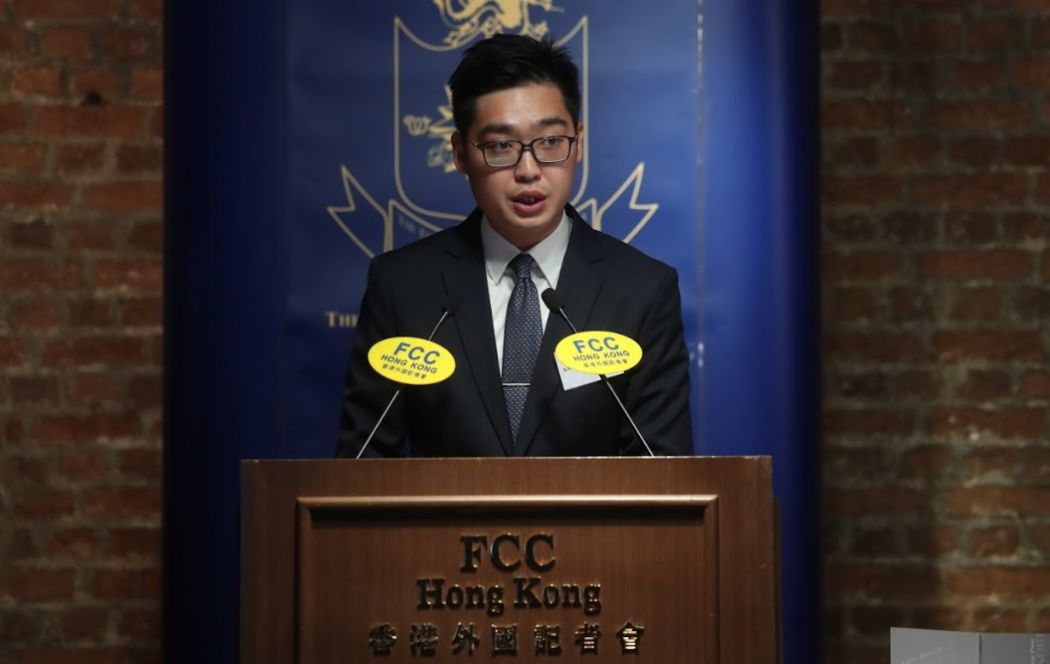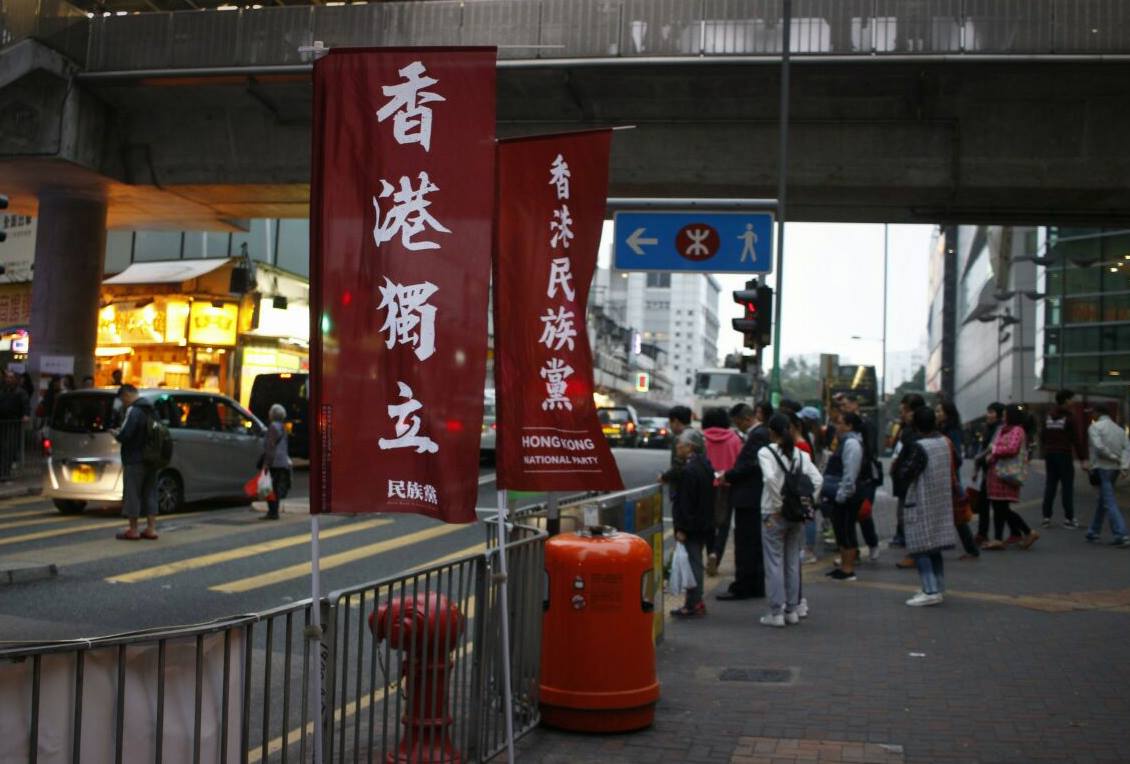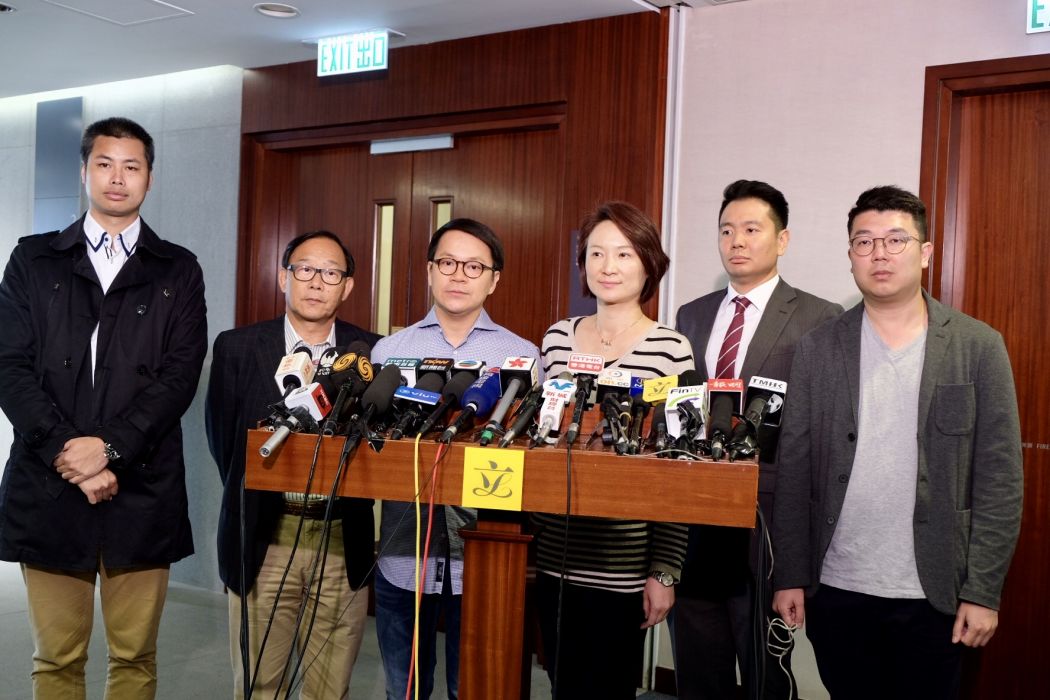Hongkongers could be jailed or fined if they attend meetings of, or give any aid to the banned pro-independence Hong Kong National Party (HKNP), security chief John Lee has said.
The terms “meeting” and “aid” are not clearly defined in the Societies Ordinance.
The government issued a notice to officially ban the party on Monday, although HKNP can still appeal to the chief executive. At a press conference on Monday, Secretary for Security John Lee warned that residents could be punished for several kinds of activities under the Societies Ordinance.

“The criminal acts under the Societies Ordinance are immediately applicable [after the ban],” Lee said. “Law enforcement agencies will handle acts involving HKNP in accordance with the Societies Ordinance and Hong Kong laws.”
The most serious crimes include managing or assisting in the management of an unlawful society, which may lead to a HK$100,000 fine and three years in prison.
Those who knowingly allow a meeting of an unlawful society to be held in their premises may receive a fine of up to HK$100,000 and two years in prison. Those acting as an executive of, attending meetings of, paying money to, or giving any aid to an unlawful society may be fined HK$50,000 and sentenced to two years in prison.
Anyone who incites, induces or invites another person to become a member of, or assist in the management of an unlawful society may also receive a fine of HK$50,000 and imprisonment of up to two years.

Asked if residents would be committing an offence if they share or like HKNP’s Facebook page, Lee only said that the crimes listed in the Societies Ordinance target members of unlawful societies and those who fund or aid them.
“We have to judge in accordance with the Societies Ordinance whether someone’s activities breached Hong Kong laws,” Lee said, adding that there were other laws regulating criminal actions.
Asked if HKNP members would be committing an offence if they form or join other groups, Lee also said that it would be dealt with in accordance with the provisions of the Societies Ordinance.
But Lee declined to specify what actions the police will take.

‘Dangerous precedent’
Maya Wang, senior researcher at the NGO Human Rights Watch, said the ban was “a milestone in the Beijing and Hong Kong governments’ assault on Hong Kong’s freedoms.”
“Although the Hong Kong police stated that the party ‘has not yet used any violence,’ it justified the ban as necessary as a pre-emptive move to eliminate ‘a real threat to national security,’” she said. “This justification sets a dangerous precedent, where more non-violent pro-democracy political groups may be similarly banned.”
“The ban violates a range of human rights guaranteed to Hong Kong people, including the rights to freedom of association and assembly. The ban is particularly worrying together with recent news that members and families of other pro-democracy groups are being harassed and interrogated in the mainland.”
Pro-democracy lawmaker Claudia Mo said that the ban showed the government’s “imperial attitude” and expressed concerns that it would harm freedom of association in Hong Kong.
“The Hong Kong government is basically trying to create more political terror and fear in Hong Kong,” she said. Mo added that there will be a rally to show opposition to the ban.
The pro-Beijing DAB party and the Federation of Trade Unions both supported the ban.

Starry Lee, leader of the DAB party, said the security chief gave HKNP eight weeks to argue its case, but it has not stopped advocating for Hong Kong independence.
“Based on our observation, the government acted carefully according to the law of Hong Kong and the authority vested to them,” she said.
She said the decision was a late one, but it has given a strict and clear message that there is no tolerance for independence.
“‘One Country, Two Systems’ cannot become a platform to damage national unity,” she said.
